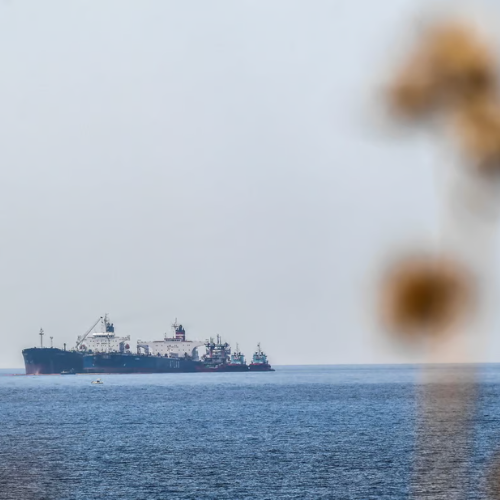The European Union (EU) is moving forward with new sanctions aimed at Russia’s secretive fleet of tankers, which the country uses to move its oil despite international restrictions. This “shadow fleet” is a hidden network of tankers helping Russia sell oil around the world without abiding by price limits. The EU aims to approve this new sanctions package by the end of the year, according to sources familiar with the ongoing talks. These sanctions would also include penalties on individuals who are involved in the trade of Russian oil.
This sanctions plan is part of a broader effort by the EU and its allies to block Russia’s profits from oil, its most important source of income, especially as these funds are suspected of fueling Russia’s military activities. However, finalizing this sanctions package is challenging. All 27 EU member countries must agree for any decision to pass, and lately, it’s been difficult to achieve this unity. Hungary, one of the EU members, has often used its veto power to block previous sanctions, adding complexity to the process.
EU Sanctions Against Russia’s Shadow Fleet
Since Russia’s full-scale invasion of Ukraine, the EU, along with the United States and the United Kingdom, has imposed multiple rounds of sanctions on Russia. These sanctions target Russia’s economy by limiting its ability to sell oil and make money from it. Recently, they’ve been focusing on restricting the “shadow fleet” of tankers that Russia uses to transport oil secretly.
This shadow fleet allows Russia to bypass a $60-per-barrel price limit that the Group of Seven (G7) countries and the EU have set for Russian oil. In other words, Western companies are not supposed to buy or transport Russian oil if it’s priced above this limit. To enforce this, the EU and its allies have banned companies from providing essential services, like transportation and insurance, for any Russian oil sold above the cap.
However, Russia has found ways around these restrictions by building a hidden network of tankers that do not depend on Western services. This shadow fleet keeps Russian oil moving around the globe and makes it harder for the EU and other Western countries to enforce the price limit. Although the EU has already targeted dozens of tankers and ships tied to Russia, Moscow continues to earn substantial profits from its oil exports by using this covert fleet.
Targeting Individuals and Companies
The new package of EU sanctions will likely go beyond just the shadow fleet. Officials plan to include specific penalties against individuals who are directly involved in helping Russia move its oil through this hidden network. This move is intended to send a strong message to those who assist Russia in evading sanctions.
EU Moves to Stop Russia’s Shadow Fleet from Endangering Waters
Apart from these measures, the EU, the UK, and the US have also taken steps against companies in third-party countries that support Russia in transporting oil. These companies, though located outside of Europe or North America, often provide services and resources to help Russia get around the sanctions. By targeting these entities, the EU hopes to cut off more avenues that Moscow uses to sell its oil and fund its military efforts.
A Bigger Package in the New Year
Alongside these new sanctions, EU leaders are already planning a larger sanctions package that they hope to pass early next year. This package could contain even stricter trade restrictions and new tariffs on Russian goods, including agricultural products. The EU is eyeing February 24 as a target date for adopting this package, which would mark the third anniversary of Russia’s major invasion of Ukraine.
The EU’s ability to pass this bigger package might be smoother in 2024, as the bloc’s presidency shifts from Hungary to Poland. Poland is known for its strong stance against Russia and is expected to support tougher measures. Some EU members are also pressing for more sanctions on Russia’s trade in liquefied natural gas (LNG), which is another critical revenue source for Moscow.
As negotiations continue, the EU, US, and UK remain focused on cutting off Russia’s oil and gas profits. These sanctions are part of a wider strategy to weaken Russia’s economic capacity to fund its war efforts. For now, however, EU leaders are focused on securing unanimous support for the latest sanctions targeting the shadow fleet and the individuals behind it, with the hope of approving them by the end of the year.


